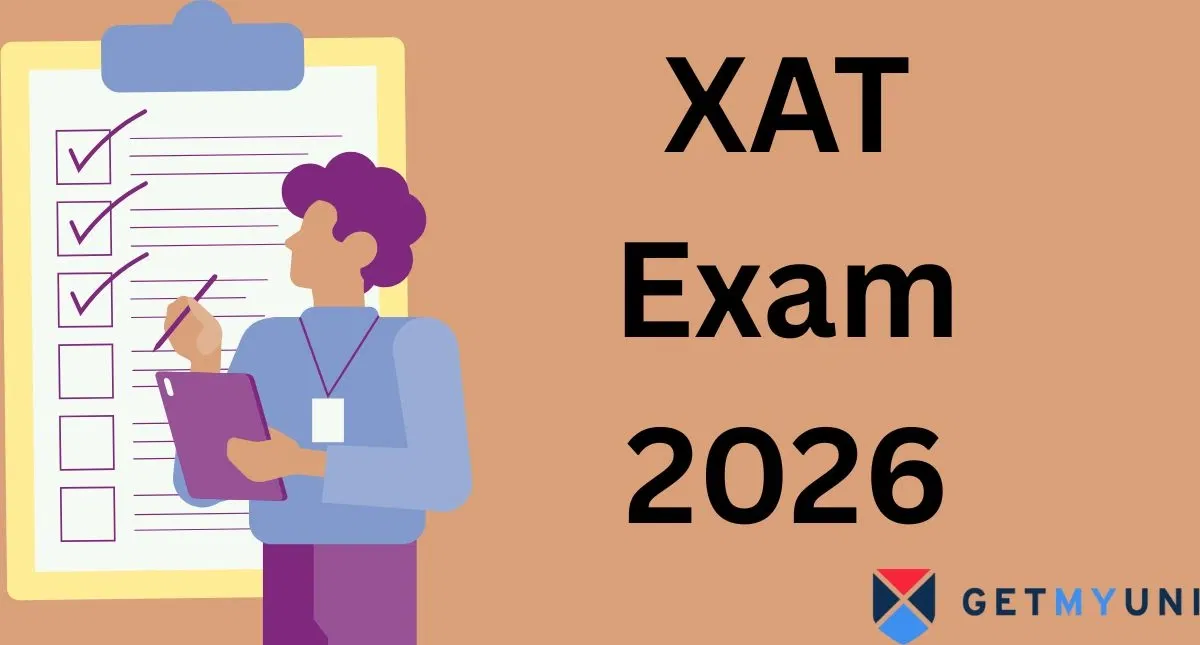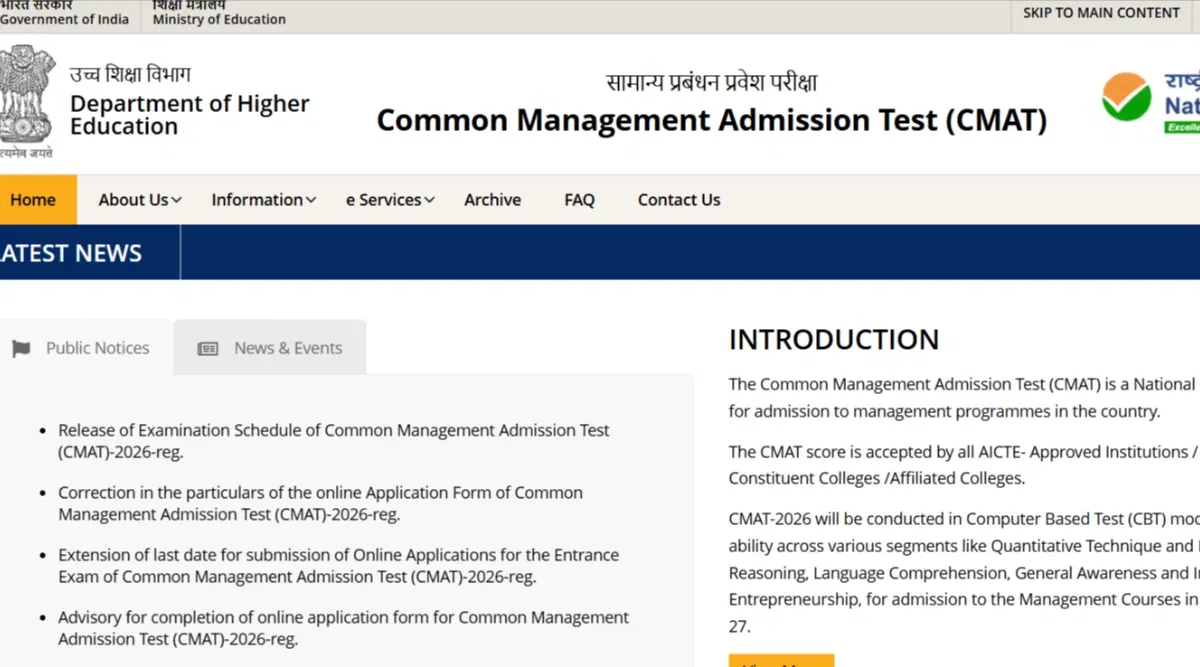MA Economics focuses on advanced theories of economics, research and data analysis. It prepares you for different roles in policy, research, etc. However, an MBA offers knowledge on business training and emphasizing the management strategy.
Table of Contents
- MA Economics vs MBA Which is Better?
- Masters Economics vs MBA Overview
- MA Economics vs MBA Eligibility And Admission Process
- MA Economics vs MBA Course Curriculum
- MA Economics or MBA Benefits Of Pursuing
- MA Economics vs MBA Specialization
- MA Economics vs MBA Scope And Opportunity
- MA Economics vs MBA Salary
- MA Economics vs MBA Top Colleges
- MA Economics vs MBA Which One To Choose?
MA Economics and MBA, both are postgraduate program offering you an opportunity to grow and develop through cross-functional and specialised knowledge. However, the key difference lies in the purpose, curriculum and the opportunities the two courses has to offer. Through this article, one can comprehend the difference between MA Economics and MBA and choose the best option.
Confused between MA Economics and MBA? Can't decide MA Economics or MBA which is better ? It entirely depends on career goals and the skills you wish to develop. A Master in Economics will majorly focus on economic theory, quantitative analysis and research methods. Whereas, an MBA course will give you a broad perspective of management strategies and marketing.
MA Economics vs MBA Which is Better?
Both MBA and MA Economics are very complex courses yet among the most recognised courses for students. Both these courses expand your financial skills and bring an understanding of the financial market and management of the resources. But are these courses the same? Well, the answer is, No. MBA is about providing specialised knowledge to operate the organisation, whereas, MA Economics is much more technical and caters to subjects like statistics and economics. Let us delve deeper and evaluate both the courses.
|
Basis |
MA Economics |
MBA |
|
Duration of the course |
2 years on average |
24 months including Summer Internship |
|
Scope |
Internationally Accepted |
International recognition |
|
Curriculum |
Theoretical & Practical learning |
Experiential & Case-study based Learning |
|
Average Cost |
INR 10,000 - 1 LPA |
INR 9 - 10 LPA |
|
Specialization |
Concepts of Economics and Statistics with specialise knowledge |
Specialization available in a variety of subjects |
|
Job Profiles |
Data Analyst, Economist, Financial Planner and Equity Analyst |
Marketing and Sales Manager, Financial Manager and Management Consultant |
Masters Economics vs MBA Overview
So, What are MA Economics and MBA? Both the courses are postgraduate degree programmes and have worldwide recognition. MA Economics is a 2- years programmer offered at top universities and colleges of India and abroad. It is a technical and specialised study that brings an understanding of wealth production, consumption, and distribution within an economy. One inculcates subjects like macroeconomics and topics such as employment, national income, and consumer behaviour are covered. An aspirant can expect a job opportunity in both government and private sectors of the economy.
Whereas, MBA is 2- year program offered by universities and institutes all across the globe. A degree in MBA is done to gain specialized knowledge in a particular field or to switch a certain field of job or just to bring development in one’s career graph. Subjects from marketing to finance to human resource management all are covered during the tenure. A student should expect a lucrative career scope in MBA with opportunities in both private and public and multi-national companies.
MA Economics vs MBA Eligibility And Admission Process
The universities and institutes offering courses in Management and Economics have specific criteria for eligibility apart from the common ones. The eligibility criteria are often based on the curriculum structured by the institute or the pattern of eligibility followed by the institutes in the country or region. Below we have segregated the eligibility criteria -
MA Economics Eligibility Required for Admission:
- For MA Economics, a student should have cleared a full-time type graduation degree in economics or equivalent from a recognised authority.
- A minimum of 50% aggregate marks is required for admissions is essential at the graduation level.
- Students have to undergo entrance examinations conducted by universities such as - DUET, BHU PET and MS EEE.
MBA Eligibility Required for MBA Admission:
- For MBA or Masters in Business Administration in India, a student must have completed a full-time graduation degree from a recognized university regardless of the discipline.
- A minimum percentage of 50% is required for taking admission into any MBA Business School.
- Usually, an average of 2.5-3 years of work experience is expected from applicants. However, the criteria for work experience may vary from institute to institute.
- Students have to sit for entrance examination like CAT, MAT, SNAP and XAT.
- After clearing the cutoff of the desired institute, the student undergoes group discussion and personal interview rounds.
MA Economics vs MBA Course Curriculum
Even though both the courses aim at providing a distinctive education programme to you, who want to establish yourselves in the field of management, investment or at the mid-level management of an organisation. The curriculum and duration of the courses differ drastically. On one hand, MA Economics Syllabus and Subjects is about imparting knowledge that is based on theory and research, on the other hand, MBA Syllabus and Subjects is about providing experiential learning through case studies and project along with cross-functional knowledge to the students.
During the 2-year tenure of MBA, while the 1st year is concentrated on imparting generalised knowledge about the fundamentals of management and providing basic knowledge about various aspects like marketing and HR. The 2nd year is dedicated to providing extensive knowledge on one specialisation opted by the candidate amongst the different specialisation programs offered by the institute. For MA Economics, the 2 years is divided into 4 semesters - while the first two semesters are more of fundamentals about economics and statics of the economy, the 3rd and 4th semester deals with more of research and understanding of a particular domain elected by the students. Some of the key subjects of both are given below:
| MA Economics Syllabus | MBA Syllabus |
| Macroeconomic Theory | Business Law |
| International Trade | Principle of Accounting |
| International Finance | Corporate Finance |
| Quantitative Methods | Marketing Management |
| Econometrics | Organisational Behaviour |
| Development Economics | Operations Management |
| Globalisation and Economics | Consumer Behavior |
MA Economics or MBA Benefits Of Pursuing
MA Economics and MBA both bring their unique set of advantages to the aspirants. The goal for the two courses is drastically different as one caters to providing technical and expert knowledge under one subject while the other is for experience holders and people who want to gain specialised knowledge.
MA Economics Benefits
- Pursuing a degree in MA opens up the opportunity to pursue a doctorate in the future if one is inclined towards academics.
- A student aspiring to make a career in the Indian Economic Services, MA Economics is the perfect stepping stone towards that.
- The growing market and risk in the economy, has increased the demand for professionals qualified to forecast and analyse such situations.
- A graduate in MA Economics will be offered high-yielding jobs under various sectors from education to IT.
MBA Benefits
- An excellent opportunity to get cross-functional knowledge and develop advanced managerial skills.
- An opportunity to expand professional networks through world-class mentors and leaders along with an experience of peer-to-peer learning.
- A degree that is recognised and respected by people all across the globe. This will allow one to have better opportunities and scope for higher salaries.
- One can choose a specialization that matches their goals and objectives.
MA Economics vs MBA Specialization
MA Economics and MBA both cater to impart education in the field of business and management. However, while MA in Economics is a specialised domain offering in-depth knowledge and expertise of the domain and providing myriad options for research and study. Whereas, in MBA, the 2nd year of the curriculum caters to providing specialisation to its students. These specialisations are more about understanding in details the principles and role of that domain in shaping the organisation and learning about the variety of subjects under that domain. Some specializations in MBA are:
MBA Specializations
- MBA Marketing
- MBA Finance
- MBA HR
- MBA Operations Management
- MBA Healthcare Management
- MBA Digital Marketing
MA Economics vs MBA Scope And Opportunity
MBA and MA Economics both provide a plethora of opportunities to you due to the curriculum and specialization offered. Students from MBA as well as MA Economics are offered job opportunities are offered by various public and private sectors such as Software and IT Development firm, FMCG Companies, Financial Institutions and Marketing Agencies. Some of the key roles offered to the postgraduate students are:
| MA Economics Job Profiles | MBA Job Profiles |
| Research Analyst | Finance Manager |
| Economist | Management Consultant |
| Data Analyst | Marketing and Sales Manager |
| Equity Analyst | Human Resource Manager |
| Project Manager | Operations Manager |
MA Economics vs MBA Salary
Compensation is an important factor while determining the choice of doing management studies. A course in MBA can be an expensive one, and most students like to understand the compensation and return on their investment after the tenure of the course. Similarly, for MA Economics even though the course is less expensive compared to MBA, a return on investment for the course is an essential part of decision making. Following are some job profiles and the average salary from each -
You can find the MA Economics Salary and MBA Salary for different posts in the table below:
|
MA Job Profiles |
MA Economics Average Pay scale |
MBA Job Profiles |
MBA Average Pay scale |
|
Project Manager |
INR 12.3 LPA |
Operations Manager |
INR 7.9 LPA |
|
Economist |
INR 8 LPA |
Marketing Manager |
INR 9.4 LPA |
|
Data Scientist |
INR 8.3 LPA |
Human Resource Manager |
INR 7.4 LPA |
|
Research Scientist |
INR 7 LPA |
Finance Manager |
INR 10 LPA |
|
Econometrician |
INR 12.3 LPA |
Management Consultant |
INR 12 LPA |
MA Economics vs MBA Top Colleges
MBA and MA Economics are offered at top universities and institutes across the country. These two courses are among the go-to programs for students inclining commerce and economics. From Finance to economics and from Human resource to statistics, all such subjects are provided under the curriculum of these colleges located at the myriad locations of the country and offering the best-in-class facilities in learning and development. Some of the colleges that provide MBA and MA Economics are:
MA Economics vs MBA Which One To Choose?
Pursuing a career in management and economics is among the toughest and yet the most esteemed career choices as it is versatile and can be pursued by people from all walks of education backgrounds and most importantly, these are some of those courses which allow plans for development and growth in the career graphs of aspirants. Two such reasons to choose the two courses are -
- Global Recognition: Both the courses are globally considered in different countries and provide you with opportunities to make a career in different parts of the world.
- Career Development: A postgraduate program under these two courses provide a sure-shot opportunity to bring lucrative career development and growth through high-yield job opportunities under the best recruiters.
All in all, both the subjects are best in their right way. It depends on you aspirant and your inclination and interests. However, you should carefully consider the two courses along with the pros and cons before signing up for one. Till then happy learning!























POST YOUR COMMENT